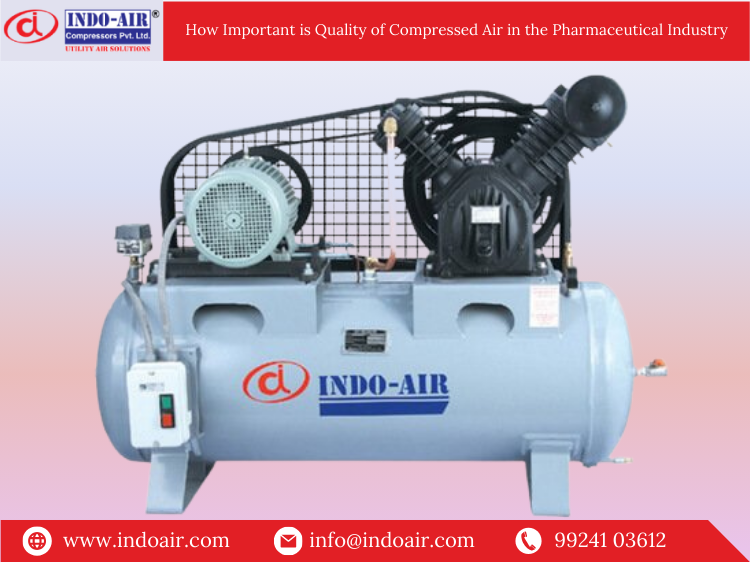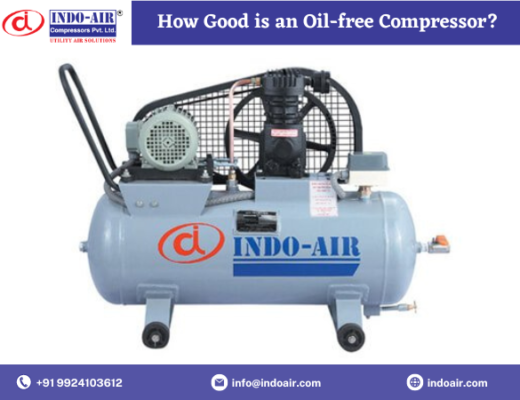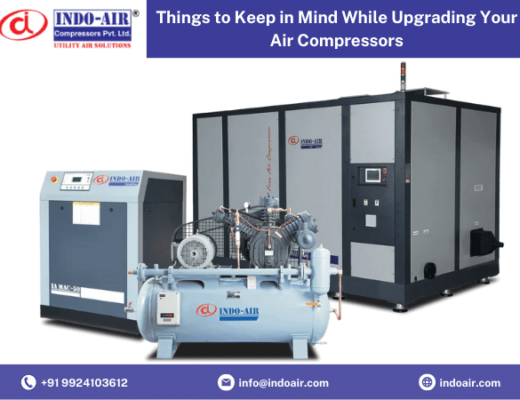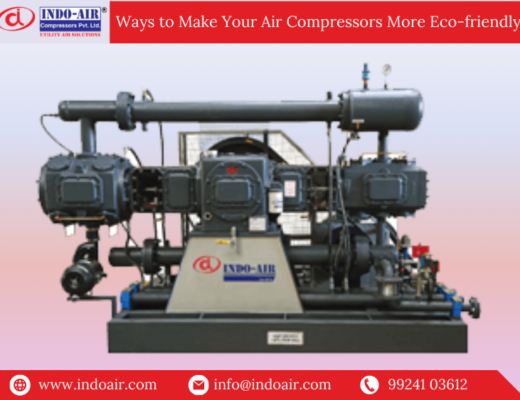Ordinary air that has had its volume reduced by a compressor is known as compressed air. Compressed air is mostly made up of hydrogen, oxygen, and water vapour, just like conventional air. When air is compressed and its pressure is increased, heat is produced. High pressure air compressor manufacturers in India use energy to create compressed air, accounting for around 10% of total industrial power use. The pharmaceutical industry needs compressed or oil-free air to manufacture pharmaceuticals and associated items. The simplest explanation for this is that the air must be as pure as possible to prevent contamination of the finished product.
Importance of compressed air in Pharmaceutical Industry
Air pollutants of any kind have the ability to interfere with the operation of pneumatic systems and possibly cause problems with the quality of the output. If the product and process air come into direct contact, this will happen. Air may come into touch with the product during blow-off from a pneumatic system, depending on how the manufacturing is set up. The air must be as pure as possible to avoid contaminating the finished product. The pharmaceutical sector has to put the quality of compressed air used in its production facilities first due to stricter quality control requirements and rising regulatory demands.
Reasons why compressed air is used in Pharmaceutical Industry
There are many reasons why compressed air is used in pharmaceutical industries and we have listed out almost all in the list below:
- Capsule and tablet manufacturing: Compressed air finds widespread application in the production of tablets, capsules, and even caplets. All of the manufacturing steps that include the contact of compressed air with the drug are mixing, hardening, granulating, drying, pressing, coating, and packaging.
- Fermentation process: Since sterile air is used to aerate fermenters, contaminated sterile air can also infect the final product, leading to poor quality. For this reason, compressed air is essential to a successful fermentation process.
- Packaging, canning and bottling process: The pharmaceutical sector relies heavily on compressed air for the packing and bottling of its medications, which is a very large industry. Medicine packaging includes blister packs, pharmaceutical bottles, light-weight plastic containers, and cartons. Depending on the product, compressed air is utilised to clean and remove moisture from these containers.
- Instrumentation air: The manufacturing process requires the use of compressed air to power the tools. The substance needs to be pure and oil-free because it will come into contact with the tools’ air. Additionally, as part of the remainder of the process, compressed air is utilised for sorting, polishing, and operating valves.
- Drying process: Medicines must be thoroughly dried in order to eliminate all solvents and water from the product. This procedure is carried out using vacuum pumps, which also help to evaporate the liquids from the items entirely, and compressed air. One of the most crucial steps in the pharmaceutical industry is the drying process, which air compressors effectively complete.
- Manufacturing of ointments, gels and syrups: Production of gels, syrups, and ointments Before creams and gels are put into tubes and vials, they must be thoroughly cleaned of all moisture, dust, and liquid. The compressed air that emerges from the booster air compressor ensures that these undesirable materials do not contaminate the final product.
- Wastewater treatment: It is necessary to purify the water used in the production process in advance to prevent contamination of the finished product. Compressed air from the screw air compressor is used in this procedure to make the waste water suitable for use in the manufacturing process.




